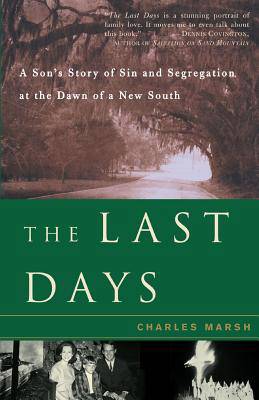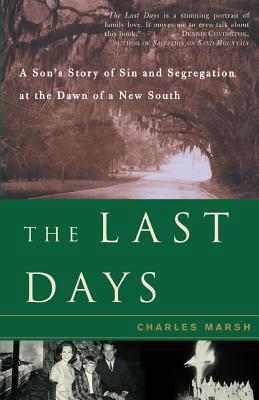
- Afhalen na 1 uur in een winkel met voorraad
- Gratis thuislevering in België vanaf € 30
- Ruim aanbod met 7 miljoen producten
- Afhalen na 1 uur in een winkel met voorraad
- Gratis thuislevering in België vanaf € 30
- Ruim aanbod met 7 miljoen producten
Zoeken
The Last Days
A Son's Story of Sin and Segregation at the Dawn of a New South
Charles Marsh
Paperback | Engels
€ 37,45
+ 74 punten
Omschrijving
Seeking to come to terms with the haunting memories of his childhood in the deep South-Charles Marsh has crafted a memoir of small-town Southern life caught up in the whirlwind of the Civil Rights movement. As minister of the First Baptist Church in Laurel, Mississippi, Charles Marsh's father Bob Marsh, was a prominent man who was beloved by the community. But Laurel was also home to Sam Bowers, the Imperial Wizard of the White Knights of the Mississippi KKK and the director of their daily, unchallenged installments of terror and misery. Bowers was known and tolerated by the entire white community of Laurel. This included Bob Marsh, who struggled to do the right thing while reeling between righteous indignation and moral torpor, only slowly awakening to fear, suffering, and guilt over his unwillingness to take a public stand against Bowers. At the same time, The Last Days examines the collision of worlds once divided-white Protestant conservatism, the African American struggle for civil rights, and late 1960s counter culture-that propelled the dramatic changes in everyday life in a small Southern town.
Specificaties
Betrokkenen
- Auteur(s):
- Uitgeverij:
Inhoud
- Aantal bladzijden:
- 304
- Taal:
- Engels
Eigenschappen
- Productcode (EAN):
- 9780465044191
- Verschijningsdatum:
- 7/03/2002
- Uitvoering:
- Paperback
- Formaat:
- Trade paperback (VS)
- Afmetingen:
- 130 mm x 202 mm
- Gewicht:
- 317 g

Alleen bij Standaard Boekhandel
+ 74 punten op je klantenkaart van Standaard Boekhandel
Beoordelingen
We publiceren alleen reviews die voldoen aan de voorwaarden voor reviews. Bekijk onze voorwaarden voor reviews.











